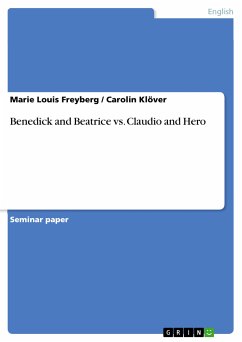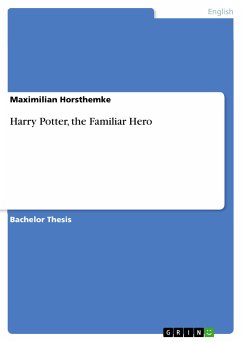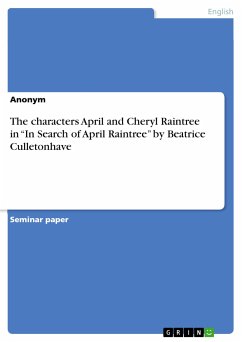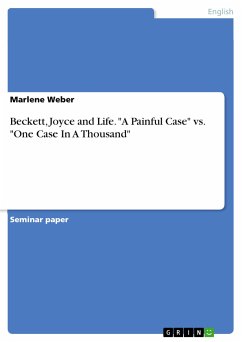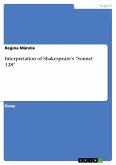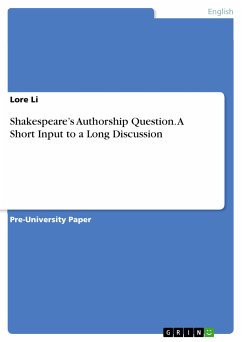Seminar paper from the year 2005 in the subject English Language and Literature Studies - Literature, grade: 2,0, University of Kassel, course: Shakespeare - Much Ado about Nothing, language: English, abstract: The following paper deals with the comparison of the two relationships in William Shakespeares’ Much Ado about Nothing. The first section of the main part contains a short introduction of the author William Shakespeare himself. Furthermore the play itself is introduced with a short description of every important character, a summary of its content, and a brief paragraph about the origine of Much Ado about Nothing as a play. In the first and second section of the main part the four main characters Benedick, Beatrice, Claudio, and Hero are revisualised in detail before their respective relationship is described and analysed. The third section of the main part of this paper handles the comparison of the two partnerships. Here possible similarities and differences will be shown and discussed before a conclusion is drawn in the very last part of the paper. Short-term objective of this paper is to analyse similarities and differences of the two relationships between Benedick & Beatrice and Claudio & Hero. A long-term objective is to find out, which one of the two partnerships fits better into the standard of the Elizabethan age. At the very end of the paper a short perspective shall be given about our point of view concerning the question of which relationship probably lasts longer in the end.
Bitte wählen Sie Ihr Anliegen aus.
Rechnungen
Retourenschein anfordern
Bestellstatus
Storno

